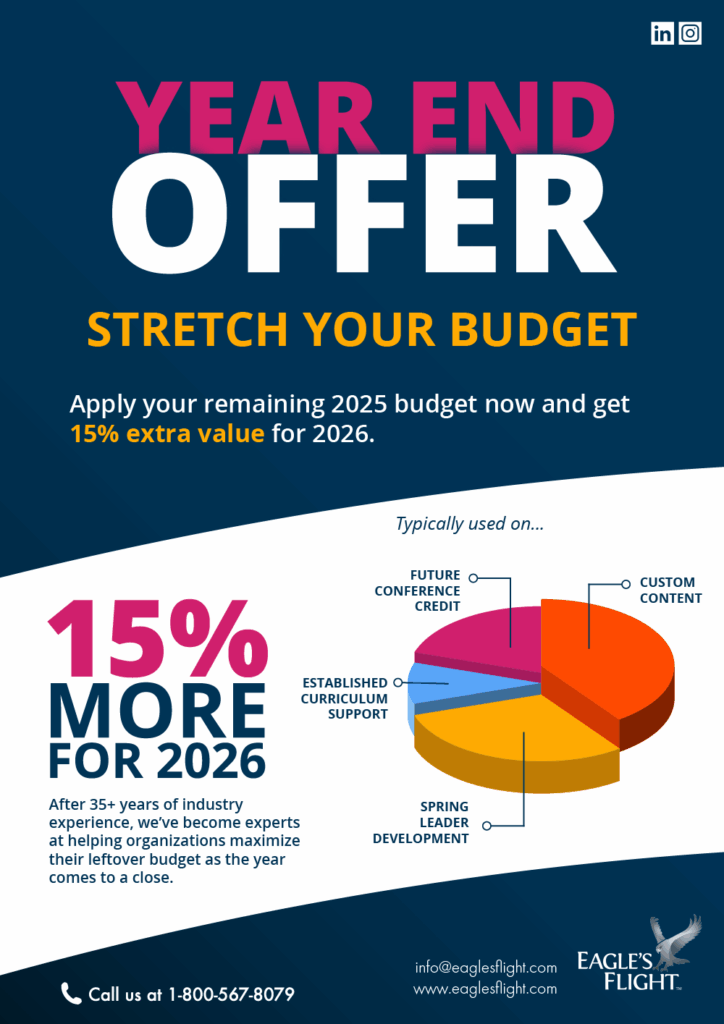A Month-by-Month Guide to Corporate Event Planning
It’s no secret that corporate event planning requires you to coordinate numerous moving parts. To make sure nothing gets lost in the shuffle, use this month-by-month guide, which highlights some of the most important aspects of event planning, to start planning your next corporate event. You may need to adjust your timeline depending on several factors, such as the size of your event, whether it’s off-site or requires travel, and whether it will span multiple days; however, this guide should give you a good starting point.
12 Months Before Your Event
Determine the goal. Because the event’s goal should drive every other decision, you must decide on one before you do anything else. Is the main purpose to educate, inform, or perhaps even transform? Or is the purpose to engage, entertain, and create excitement within your organization? It is critical to identify clear goals to be truly successful in the eyes of all stakeholders.
9‒12 Months Before Your Event
Finalize and approve your budget. Keep in mind that if you want an easier time getting buy-in from leadership, be sure to clearly tie your event’s goals to business goals.
Pick your venue. If you’re conducting an off-site meeting or conference, it’s always a good practice to have multiple dates in mind when you approach the venue. This is because the goal of your event influences the kind of venue needed. For example, if your goal is to change participants’ behaviors so they perform better at work, that will most likely involve some hands-on training; in this case, make sure your chosen location has enough room for your participants to get up and move around during your training exercises.
Clarify roles. Who needs to do what to pull off the event? The earlier you clarify this in the corporate event planning process, the better. For example, if your event involves training, you’ll want to determine early on whether your in-house trainers will be running the event or whether you want to engage an outside training firm.
6‒9 Months Before Your Event
Start brainstorming your theme. Choosing a theme is a great way to encourage enthusiasm and involvement. It must be practical enough to allow participants to be themselves and yet creative enough to become a comprehensive metaphor for the real world. It is in this middle ground that events find their own magic and become powerful, memorable, and engrossing tools at your disposable.
Invite guest speakers and any VIPs to attend. This includes members of your executive team. The presence and involvement of company leaders at corporate events speaks volumes about the extent to which the company values its employee’s professional development.
2‒3 Months Before Your Event
Finalize food and beverage menus. Remember to keep a few meals or snacks on theme, if possible, to sustain the magic!
Start advertising. Build enthusiasm early on so that when the day finally rolls around, your employees can’t wait to participate. Use internal communications to get the word out and also consider coming up with a social media strategy. Create teasers using some of the materials and the fun theme on company channels, and create an event hashtags to make it easy to search for relevant posts.
1 Month Before Your Event
Go over staff roles for the day of the event. Now, it’s time to get into the nitty gritty of corporate event planning. Who will check in participants? Who will welcome VIP guests? Who’s in charge of setting up the photo booth? Make sure to cover all your bases well before the day of for a smooth roll out.
Create a playlist. Pump up the mood with a playlist full of on-theme hits that encourage participants to let a little loose. You could even use it to help promote your event on social media by asking employees to comment with songs they think you should include.
Conduct a social media blitz. Speaking of, at least a week before your event, amp up the excitement over social media. One idea: start a countdown and share a fun fact each day about what participants will do or learn.
1 Month After the Event
As you know, corporate event planning isn’t done when you wrap up the conference. Take the following month to analyze how well it aligned with your stated goals. Did you meet the benchmarks that you set? Gather feedback from participants, and make sure you compare it to years past to determine if you’ve improved in key areas. Carving out time to reflect on how your event played out will help future ones succeed. Make a note of lessons learned to apply them the next time around.
If you’ve planned successful events in the past, what strategies or tools have you used to keep your corporate event planning on track?






